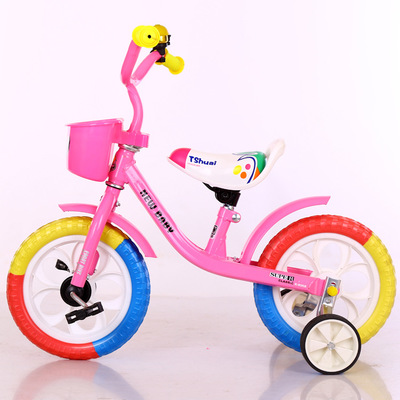12 月 . 03, 2024 18:25 Back to list
bike child supplier
The Importance of Sustainable Practices in the Bike Child Supplier Industry
In recent years, the global demand for eco-friendly products has surged, prompting suppliers in various industries to adapt and innovate. Among them, the bike child sector has emerged as a dynamic market, offering not only recreational opportunities for children but also promoting an active lifestyle that contributes to sustainable living. As suppliers cater to this growing demand, it becomes increasingly vital for them to implement sustainable practices in their operations.
The bike child supplier industry encompasses a broad range of products, including bicycles, accessories, and safety gear designed specifically for children. With parents now more conscious than ever about the environment, they tend to favor suppliers who prioritize sustainability in their manufacturing processes. This shift in consumer demand presents a golden opportunity for suppliers to differentiate themselves by adopting eco-friendly practices.
One of the primary sustainable practices that bike child suppliers can implement is the use of recyclable materials
. Traditional manufacturing processes often rely on non-biodegradable substances that contribute to environmental degradation. By opting for materials that are recyclable or made from recycled sources, suppliers can significantly reduce their carbon footprint. For instance, using aluminum frames for bicycles not only makes them lightweight and durable but also allows for the recycling of materials at the end of their lifecycle.Moreover, child bike suppliers can adopt a circular economy model, where products are designed for longevity and repairability. This approach ensures that instead of being discarded after a few years of use, bikes can be refurbished or upgraded. Suppliers can establish take-back programs that allow customers to return old bicycles for refurbishment. This not only minimizes waste but also fosters customer loyalty and promotes a culture of sustainability.
bike child supplier

Another essential aspect is ensuring that the manufacturing process is energy-efficient. Suppliers can invest in renewable energy sources, such as solar or wind power, to reduce reliance on fossil fuels. This transition not only lowers production costs in the long run but also strengthens the brand's commitment to sustainability. Displaying these efforts prominently in marketing materials can enhance brand image and attract environmentally-conscious customers.
Safety is an especially critical concern in the bike child sector. Suppliers must ensure that all products comply with stringent safety standards while maintaining sustainable practices. This can be achieved through collaborative efforts with regulatory bodies to develop guidelines that prioritize both environmental sustainability and child safety. Ensuring that paints and coatings used on bikes are free from harmful chemicals is one way to enhance product safety while also being eco-friendly.
Education and awareness campaigns also play a crucial role in promoting sustainability within the bike child supplier industry. Suppliers should actively communicate with consumers about the environmental benefits of their products, such as the advantages of cycling in reducing carbon emissions and promoting physical activity among children. Partnering with schools to provide workshops or events can encourage families to embrace cycling as a viable transportation option, further weaving sustainability into the fabric of community life.
In conclusion, as the bike child supplier industry continues to grow, so too does the opportunity for sustainable practices to shape its future. By utilizing recyclable materials, adopting circular economy principles, investing in energy efficiency, ensuring safety, and promoting education, suppliers can lead the way toward a more sustainable and environmentally conscious market. This not only benefits the planet but also creates a legacy of responsible practices that children can carry forward into the future, fostering a generation that values both health and environmental stewardship. In doing so, the bike child supplier industry can truly embody the spirit of sustainability while meeting the evolving needs of families worldwide.
-
Children Tricycle Factory Custom Designs & Safety Certified
NewsMay.30,2025
-
Best Scooters for Teens Top-Rated, Safe & Durable Rides for 2023
NewsMay.30,2025
-
Affordable Mini & Baby Bicycle Prices Best Deals & Discounts
NewsMay.29,2025
-
20-Inch Kids Tricycle Adjustable Seat, Safe & Durable Design
NewsMay.29,2025
-
20 Inch Kids Bikes Lightweight, Adjustable & Durable Designs
NewsMay.29,2025
-
Magnesium disc Bicycle wholesale children bicycle wholesale children mountain balance bicycle
NewsMar.07,2025
